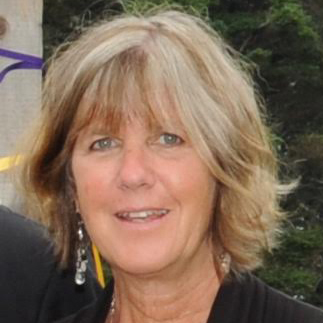Reflective Practicum Certificate in Culturally Responsive Early Childhood Education
Deepen your learning to enrich theirs with a Culturally Responsive Early Childhood Education Certificate.
Turn your professional experience in early childhood education into credits that count towards your Associate's or Bachelor's degree with Antioch University's Certificate in Culturally Responsive Early Childhood Education. The program runs for 12 weekends over 9 months, uses a dual language model (Spanish & English), and features small class sizes, with two instructors and two writing coaches.
You'll grow your professional network, expand your repertoire of teaching strategies, and enrich your childhood learning environment. Advance your education using the knowledge and expertise you already possess.
This certificate program is offered by Antioch University's Seattle Campus.
Program Overview
Graduates with this certificate will earn up to 57 credits: 12 current learning credits in writing and reflective practice, plus up to 45 prior learning credits in culturally relevant early childhood education. We help you prepare your prior learning assessment portfolio for up to 45 total prior learning credits. Prior learning credits are earned by reflecting on your previous experience and translating your real-world understanding into credits you can apply toward a higher degree. Students will be assisted to do this as an integral part of the current learning courses in this certificate. Students will attend seven full-day class sessions each quarter, held on weekends, forming a dynamic learning community. Class sessions will use the Adult Dual Language Model developed by the Center for Linguistic and Cultural Democracy. For the first cohort, half of the instruction will be in Spanish, and half will be in English, with interpretation. The first cohort is appropriate for both English and Spanish speakers. Bilinguals of other language groups are also welcome. Somali and Cantonese cohorts are scheduled for the near future.
Additional Information
Licensure Information
This program is designed to lead to state licensure.
The cohort runs for six months. Classes are held on Saturdays and Sundays and run from 9:30 AM – 5:30 PM for 8 days each quarter (total 60 contact hours).
The CRECE program is designed as a cohort of up to 24 students who move through the three quarters together with two instructors and 1 or 2 writing coaches. Classes are held on Saturdays and Sundays, approximately every other weekend, via synchronous Zoom.
Applicants to the Certificate in Culturally Responsive Early Childhood Education are expected to have the following:
Evidence of ability to do lower division (100 and 200 level) college courses, which could include any of the following: high school diploma, GED or home school certificate; CDA, “30 hours” certificate; or successful completion of CLEP tests; or completion of a continuing education or college course.
A minimum of 5 years of professional experience in the field.
Attend eight, full-day class sessions each quarter, held on weekends over zoom, forming a dynamic learning community. Class sessions will use the Adult Dual Language Model developed by the Center for Linguistic and Cultural Democracy.
For the 24-25 academic year, cohorts are appropriate for English, Spanish, Tigrinya, Arabic, and Somali speakers. Interpretation will be offered. Bilinguals of other languages are also welcome.
Graduates with this certificate will earn up to 63 credits over 3 quarters, including 18 current learning credits in writing, reflective practice, and other relevant courses, plus up to 45 prior learning credits related to their past professional work. A minimum of 30 semester or 45 quarter credits must be completed with Antioch University.
First Quarter Prior Learning Course Equivalents
- EDUC 1220 Working with Young Dual Language Learners (5 prior learning cr)
- MAT 1030 Business Math (5 prior learning cr)
- EDUC 1320 Introduction to Culturally Relevant Anti-Bias Education
- ECE 1800 Language and Literacy Development (5 prior learning cr)
Second Quarter Prior Learning Course Equivalents
- ART 2070 Cultural Arts (5 prior learning cr)
- ECE 1600 Curriculum Development (5 prior learning cr)
- EDUC 1300 Guiding Behavior (5 prior learning cr)
- EDUC 1420 Supporting Children with Special Needs (5 prior learning cr)
- SCI 2070 Science of Nutrition (5 prior learning cr)
- ECE 1200 Practicum in Early Childhood Education (5 prior learning cr)
Alternate Prior Learning Course Equivalents
Note: these course equivalencies are not specifically tied to coursework; available as substitutes for any of the prior course equivalents integrated into the coursework; your advisor will help you determine the right mix of 45 prior learning credits. If you elect one of these you will need to compile some documentation in addition to class assignments.
- ECE 1050 Intro to Early Childhood Education (5 prior learning cr)
- ECE 1070 Health, Safety, Nutrition (5 prior learning cr)
- ECE 1340 Family Child Care (5 prior learning cr)
- SPA 2050 Conversational Spanish (5 prior learning credits)
- SPA 2051 Narrative Writing in Spanish (5 prior learning credits)
- LANG 2060 Conversational Somali (5 prior learning credits)
- LANG 2061 Narrative Writing in Somali (5 prior learning credits)
- LANG 2070 Conversational Cantonese (5 prior learning credits)
- LANG 2071 Narrative Writing in Cantonese (5 prior learning credits)
- LANG 2100 Special Topics in Language Learning (5 prior learning credits)
Note: Applicants should bring a copy of their transcripts for any ECE courses already taken to be sure not to duplicate prior learning with course work. If a student has already taken one of the course
- Fall '24: Oct. 5/6, 26/27, Nov.16/17, Dec. 7/8
- Winter '25: Jan 11&12, Jan 25/26, Feb 15/16, Mar 1/2
Graduates of this certificate are better prepared to advance in the field of early childhood education by having more credits to apply toward a two-year degree and/or a four-year degree, which is the new standard in the field.
- School Age Childcare Provider
- Home Child Care Provider
- Dual Language Preschool Teacher
- Infant-Toddler Teacher
Faculty Spotlights

Emily Tran
Field Director

Jennifer Sturge
Core Faculty

Cynthia Thomashow
Academic Manager

Samantha Carrillo Mastache
Faculty
Admission
Admissions / Cost / Aid
Admissions
Requirements:
A minimum 5 years of professional experience in the field, plus evidence of ability to do lower division (100 and 200 level) college learning, which could include any of the following: high school diploma, GED, home school certificate, or successful completion of CLEP tests or a college course.
Deadlines:
- Spring April 1
- Summer July 1
- Fall Oct 1
- Winter Jan 1
To Apply:
- Complete the online admissions application.
- send a copy of one of the following: a high school diploma, GED, home school certificate, or successful completion of CLEP tests or a college course
- Submit one paragraph summarizing your background experience in early childhood education
*Complete applications received after the Deadline date may be considered if space is still available in that cohort. Please contact the Admissions Office, [email protected], for information regarding current space availability for an upcoming term. Complete applications are reviewed on an ongoing basis, and admission decisions are provided promptly. Please submit all materials to: Antioch University Seattle Admissions Office 2400 Third Avenue, Suite 200 Seattle, WA 98121 [email protected]
Cost
| Certificate in Culturally Responsive Early Childhood Education | |
|---|---|
| Tuition (6 Credits per term) | $450/cr |
| Prior Learning Tuition | $150 |
| Tech Fee | $30 |
| General Fee | $75 |
| Total per Term | $2,955 |
| View the Cost of Attendance Components | |
Transfer Credits and Prior Learning
Transfer Credits
Prospective students with at least 36 quarter credits (equivalent to 24 semester credits) of college credits from an accredited institution can apply to complete their degree in one of Antioch’s Bachelor’s degrees. Our undergraduate programs accept a maximum of 120 quarter credits/80 semester credit lower-division credits that can be transferred toward your degree program. Antioch will accept 135 quarter credits (90 semester credits) of lower-division and upper-division learning that can be transferred toward your degree. The formal evaluation of previously earned transfer credits starts during the admission process. For more information regarding the specifics of transfer credits, please talk with your admissions counselor.
*Note: See specific articulation agreements for any exceptions to these parameters
Prior Learning Credits
Undergraduate students can earn up to 45 university quarter credits (30 semester credits) for demonstrating college-level learning gained outside of school, such as through work experience, professional training, military training, or personal experience. Demonstration of prior learning involves showing evidence of the student’s knowledge of the topic and situating that knowledge within an academic context. Earning academic credit for prior learning activities may accelerate a student’s time to degree completion and significantly reduce tuition costs. Antioch offers a workshop and course to support students interested in earning credit through prior learning.
Free Unofficial Transcript Evaluation
Want to know how long it’ll take to finish your degree at Antioch? Upload your unofficial transcripts for a free evaluation, and our advisors will contact you. No strings attached.

Start your Antioch Journey
Take your next step - talk to our admissions team to find the right program for you.
